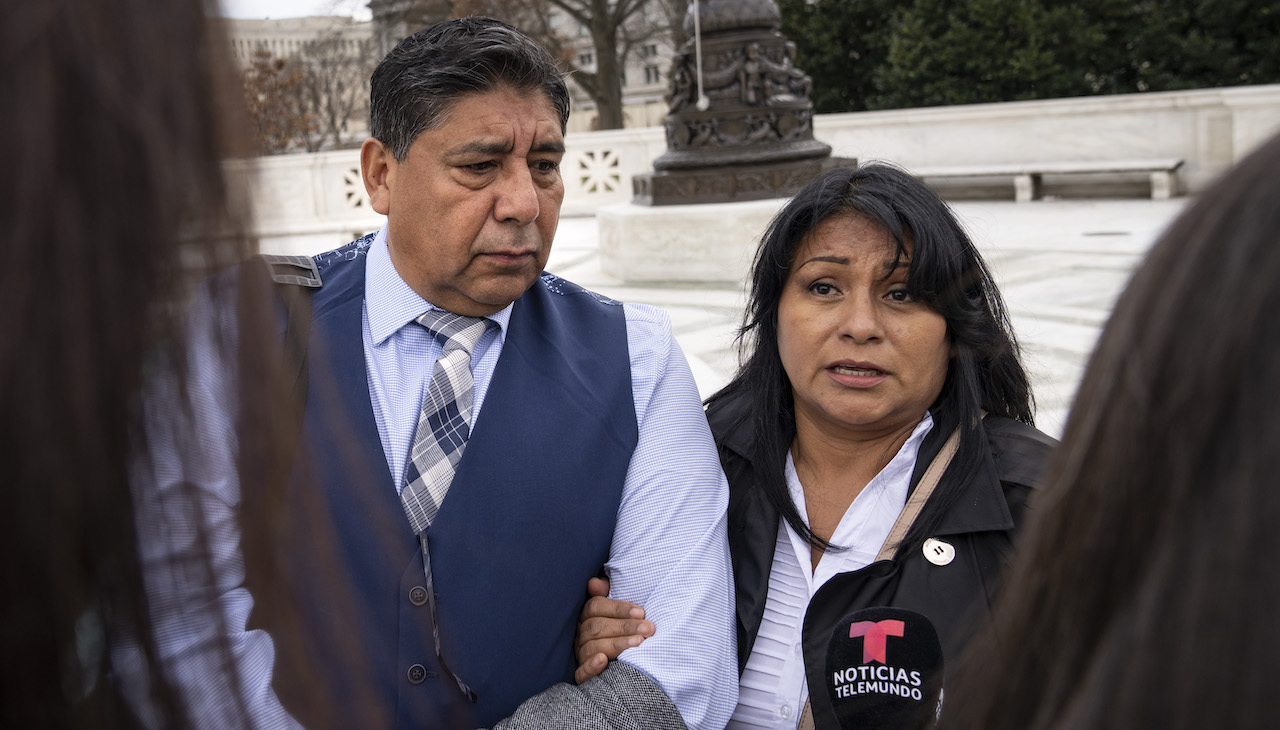
Gonzalez v. Google: The Latino family behind the mega-suit against the tech-giants
The case is challenging federal law Section 230 that shields Google, Meta, and others from being sued over user posts.
Twenty-three-year-old Nohemi Gonzalez was the sole American killed in the November 2015 orchestrated terrorist attacks across Paris. She was studying abroad in the French capital as a Design student from California State University, Long Beach when she died during a night out with friends.
In the series of attacks across the city the Islamic State would later take responsibility for, Gonzalez was one of 130 to be killed that night.
In 2016, her father Reynaldo Gonzalez sued Google and other tech giants such as Meta (formerly known as Facebook and owner of WhatsApp and Instagram) alleging that the powerful corporations were responsible for the death of Nohemi and the subsequent harm put on the family as a result.
In the lawsuit that also includes Nohemi’s mother Beatriz and brothers, they accuse Google and the other companies of spreading misinformation on their respective platforms that then radicalized their users and making them accountable for any incident after the fact.
It specifically takes a look at Section 230 of the Communications Decency Act, a much-criticized — on both sides of the aisle — federal law that protects companies such as Facebook, Instagram and Google’s YouTube from lawsuits over user content and their decisions to take content down.
According to the father Reynaldo, the platforms were spreading extremist content that included propaganda, messages from the Islamic State’s leaders and videos of graphic violence.
The lawsuit cites videos that showed footage of Islamic State fighters and updates from an affiliated media outlet. Gonzalez says the platform's efforts to keep the terrorist group off their sites was unacceptable.
The Supreme Court’s justices will have a unique chance to further explore how the legal shield is used by tech companies or to get rid of it altogether. The latter could open up a rabbit hole of liability for what users post and lawsuits over libel, discriminatory advertising and other propaganda.
Critics argue that it lets the companies avoid responsibility for any kind of harm that occurs under their watchful eye, while supporters say without the federal protection, the companies will erase more and more posts to avoid lawsuits.
The decision soon to be made on this case will add more fuel to the fire-filled arguments surrounding how to regulate online speech. Many governments have called social media a fertile ground for hate speech and misinformation.
Few have actually required the platforms to erase the posts, but that poses a big problem in the U.S., where the First Amendment makes it difficult for Congress to do anything similar.
Facebook and Twitter were no longer defendants in the lawsuit as of 2017. In 2022, a federal appeals court ruled that Google wouldn’t have to face the Gonzalez family with claims that it was because the company was protected by Section 230.
In May 2022, the family lawyers asked the Supreme Court to intervene and argued that by using algorithms to recommend content to users, YouTube was engaging in its own form of free speech not protected by Section 230.
RELATED CONTENT
Google has denied these arguments and said that the claims are based on “threadbare assertions” and “speculative” arguments.
The case is the first of consecutive arguments to be heard regarding a tech lawsuit as the Supreme Court is also expected to hear arguments for Twitter Inc. v. Taamneh.
That case looks at whether Internet service providers are responsible for terrorism-related content under the Antiterrorism and Effective Death Penalty Act of 1996. This case along with Gonzalez v. Google, were decided together in a ruling by the U.S. Court of Appeals for the Ninth Circuit that ruled that Taamneh's case could move forward.
Twitter Inc. v. Taamneh involves Jordanian citizen Nawras Alassaf, who was killed in the 2017 attack on the Reina Nightclub in Istanbul, where an ISIS affiliated gunman killed 39 people.
Like the Gonzalez family, Alassaf’s family sued Twitter, Google and Facebook for abetting terrorism, and alleged that the platforms helped ISIS grow and did not do enough to rid of this kind of activity on their platforms.
In the over three-hours spent on the case all throughout Tuesday, there are several takeaways, including the justices’ own concerns and fears of a tsunami of lawsuits to come if they were to go against Google in the Gonzalez case, and how this kind of case could put users at harm for simply retweeting such content.
The complexity of the case and situation even had some of the justice baffled as to how to proceed without a domino effect following whatever decision comes.
“We really don’t know about these things. These are not like the nine greatest experts on the internet,” Justice Elena Kagan said about herself and her colleagues.
Even Justice Brett Kavanaugh who is one of six Republicans on the Court said that the issue was perhaps going against their own power for such an issue.
“Isn’t it better,” Kavanaugh asked, to keep things the way they are and “put the burden on Congress to change that?”











LEAVE A COMMENT:
Join the discussion! Leave a comment.